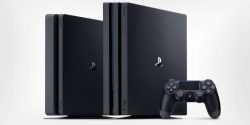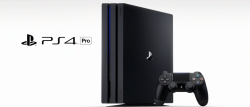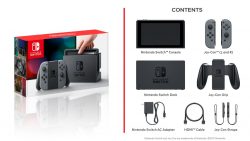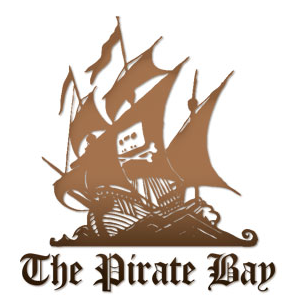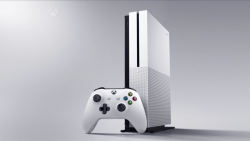From nothing to almost too much, this week’s Weekly News Roundup has one ingredient sorely missing from last week’s edition – namely news!
So let’s not waste any more time and dive right into it …

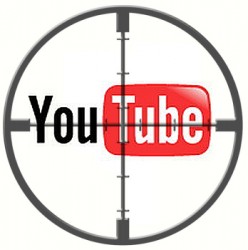
YouTube says they’re unfairly being targeted by the music industry despite handing over a billion dollars to them over the last 12 months
Google has produced the numbers to show that, far from being a place where freeloaders gather to get free music (especially ones of pirated origins), YouTube is actually putting a lot of money into the pockets of the music industry. One billion in the last 12 months, to be exact. And this is just ad-revenue from legally uploaded videos and from pirated uploads via Content ID.
You might think the music industry, and some of music’s most well known, and richest stars, might be satisfied with this. But they’re not. They say growth in free music is outpacing growth in revenue from ads and subscriptions, and they’re worried that falling track and album sales will start to hurt in the near future.
They might be right, but it’s not because of piracy or YouTube even. It does feel like the music industry may be in transition again, so soon after the last one from physical CD album sales to digital tracks. The new transition, and it’s something Google is saying as well (and giving the music industry an advanced warning on), is one from sales to subscription/advertising. The last transition has dramatically downgraded the financial fortunes of the music industry, and this new transition may hurt them again. It is a bit of a shame, but this is the free-market, and the market always decides what things are worth.
If music lovers decide that music should be subscription based, or ad-supported but free to listen, and they decide that it’s no longer in their interest to pay the current price for tracks, then that’s bad luck for the music industry. Unless they want government policy to offer special protection to the industry – and I don’t see how it’s fair to give them protection at the expense of other industries – then it’s something that Sony, Warner, Universal and EMI, and stars like Taylor Swift and Katy Perry, will have to learn to live with. They will argue that this will end the music industry, and mean less music being produced, but that would only be true if all musicians are getting into the game just for the money.
In fact, with self publishing easier than it’s ever been, and with YouTube promising to put more resources into promoting the stars of tomorrow, the future of music still looks bright, even if it means the likes of Taylor Swift may have to settle for earnings of $30 million per year, instead of $73 million.
Also looking bright are the prospects of Iceland’s Pirate Party governing the Nordic island nation. The president of the country has allowed the Pirate Party, who came third in recent elections, the chance to form government after the two biggest parties failed to build a workable coalition. Now, the chance of Iceland actually being ruled by a coalition headed by the Pirates appears to be slim, since it will need the support of one of the two bigger parties, and if this was a possibility, it would have happened already. Instead, Icelanders may have to go back to the polls and see if a fresh round of elections can produce an outright winner.
But still, it highlights just how popular the Pirates are doing in the country. It is after all the anti-establishment choice for Iceland, and the recent trend away from the establishment has definitely helped them. Anti-establishment doesn’t always have to mean islamaphobia, xenophobia and electing people with un-explainable hair, and the Pirates do have some solid policies, not to mention it’s refugee-welcoming policies (73% of Icelanders say the country should accept more refugees).


Cinema chains will not be happy if Apple’s plans become reality
Not being afraid to change things around is usually a recipe for success. Sometimes I’m a bit harsh on Hollywood when it comes to all things copyright, but often though, it’s not the studios that are resistant to change, but others in the industry. So when Apple and some of the biggest studios are meeting to discuss a way for people who prefer to watch the newest blockbusters not at the cinemas but in their homes, the resistance comes from cinema chains.
To be fair, they have valid concerns. If movies are also made available to view at home during the theatrical window, then cinemas will definitely lose money. How much depends on how much people value the cinematic experience, but with price gouging when it comes to the concession stand, and often sub-standard presentations that can’t match the clarity and aural experience of a well set up home cinema, the cinematic experience definitely has room to improve.
What could happen though is a deal which sees cinema chains get a cut of profits from this kind of premium, fast-tracked home viewing, in exchange for giving up their exclusive rights to screenings. The last thing the studios want is for cinema chains to launch some kind of protest, which ends up having films like Deadpool 2 getting boycotted at release.
For Apple though, the equation is very simple – a faster release equals more money by helping to serve a currently under-served (or really, un-served) market.
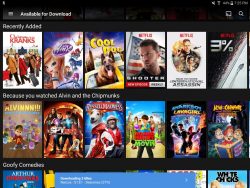
Netflix’s download mode uses a new codec to improve quality without increasing file size
This is probably how Netflix came to the decision to copy Amazon, erm I mean, to come up on their own with the innovative idea of adding downloads to a streaming service. There’s probably not a lot of people that will use the download feature, but there are situations (no Wi-Fi, on a plane, etc…) where downloading is definitely required – so an under-served area becomes served, and everyone is happy.
But that’s not why I wanted to bring up Netflix’s download mode this week. The reason is that now we know a bit more about the technical side of Netflix’s implementation, and so this kind of stuff is right up my alley. A long time supporter for H.264 AVC, Netflix is actually using Google’s VP9 for downloads. At least for selected platforms that natively support VP9, namely Android.
Compared to using the AVC-Main profile, Netflix’s use of VP9-Mobile could actually save up to 36% in terms of bandwidth, for the same perceivable quality. Netflix is also using per-chunk optimization for its encodings, which splits the movie into 1-3 minute segments and then applying a different encoding setting for each chunk, to further minimize file size.
But minimizing file size isn’t Netflix’s only goal, it can also use these enhancements to improve the quality of downloads by keeping the files at the same size, which is that the company is doing with its downloads. And since downloads are currently only supported by a limited number of devices, Netflix are free to experiment with new encoding techniques without running into problems with backwards compatibility. It’s a good idea all around.

Laserdisc makes a comeback, sort of
Speaking of good ideas, and in particularly if you’re stressing about finding a cool Christmas gift idea, how about this. Nostalgia is a thing this holiday (eg. Nintendo Classic), so why not bring back laserdiscs, without actually bringing it back. These laserdisc sized Blu-ray “Big Sleeve Editions” from Disney is obviously another cynical attempt at double-dipping, but they are also very attractive looking packages for that film fan friend or family member that already appears to have everything. They’re only available in the UK at the moment, but don’t be surprised to see it elsewhere in the future.
In Ultra HD Blu-ray news, it does speak to the current state of PCs (and possibly the paranoid copyright culture) that despite the availability of a $299 Ultra HD Blu-ray player in the form of the excellent value Xbox One S, you still can’t play UHD discs on your PC because of the lack of available hardware and software.
But the situations appears to be getting better, with Intel, Nvidia and AMD all working hard to produce new hardware that enables and accelerates UHD playback, and on the software front, Cyberlink has just announced that PowerDVD has received official UHD Blu-ray certification, meaning UHD playback will be coming in 2017.
To get the best out of UHD, you’ll probably end up needing a new CPU, GPU, optical drive and monitor (so basically an entirely new PC), at considerable cost. That $299 Xbox One S is starting to look mighty tempting.
Once things start rolling on the PC UHD Blu-ray front, I might just write a guide on how you can build the cheapest possible UHD capable system that can get the best out of UHD.
======
Well, that was a good news week, and I didn’t even have to resort to fake news. Alright, no more blabbering from me. See you next week!
![]()
![]()


